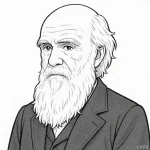“I love to go to the zoo. But not on Sunday. I don’t like to see the people making fun of the animals, when it should be the other way around.”

- July 21, 1899 – July 2, 1961
- American
- Novelist, poet, journalist
table of contents
Quote
“I love to go to the zoo. But not on Sunday. I don’t like to see the people making fun of the animals, when it should be the other way around.”
Explanation
In this quote, Hemingway humorously critiques human behavior, specifically the tendency of zoo visitors to mock or belittle the animals they observe. He points out that the power dynamics are reversed in such settings, where humans feel superior and entitled to entertain themselves at the expense of the creatures in captivity. Hemingway’s comment suggests a reflection on human arrogance, as he believes that, in reality, it is the humans who should be the objects of mockery by the animals, not the other way around. The humor here is underpinned by a sense of irony and a critique of how people often treat animals—both in the zoo and beyond—as subjects of amusement or spectacle rather than beings deserving of respect and dignity.
Hemingway was known for his deep empathy toward animals and nature, often depicting animals as symbolic representations of innocence and integrity in contrast to human flaws. In works like The Old Man and the Sea, where Santiago’s struggle with the marlin is portrayed with deep respect for the fish, Hemingway portrays nature as something that should be admired and approached with reverence, not cruelty. This quote aligns with his worldview that humans often act arrogantly toward nature, ignoring the inherent value of the creatures around them.
In the modern context, this quote resonates with ongoing discussions about animal rights, conservation, and the ethical treatment of animals in zoos and other human-controlled environments. The image of visitors mocking animals at the zoo touches on the disrespect many animals face when they are placed in unnatural and often distressing situations for human entertainment. Hemingway’s words serve as a reminder of the power imbalance between humans and animals and the need for greater compassion and awareness in how we engage with the natural world. It encourages us to reconsider our treatment of animals and to reflect on how our behavior often mirrors the arrogance and dominance we project over those we perceive as weaker or less significant.
Would you like to share your impressions or related stories about this quote in the comments section?




